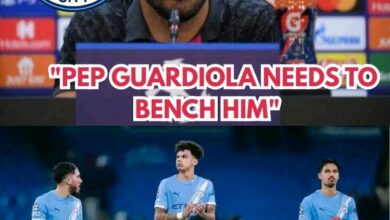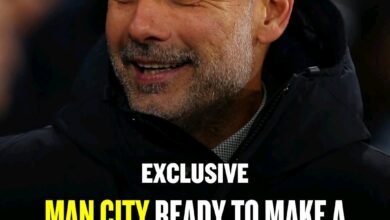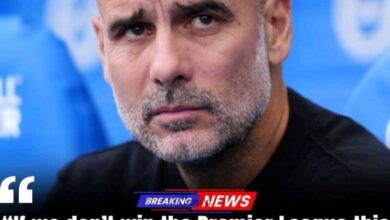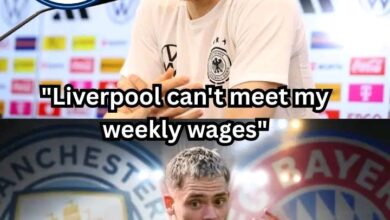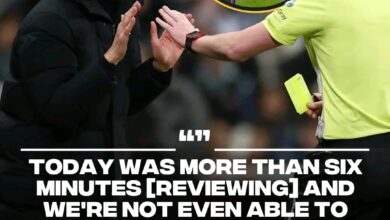£40m Man City player is receiving ‘lucrative’ offers to leave, he could link up with Riyad Mahrez
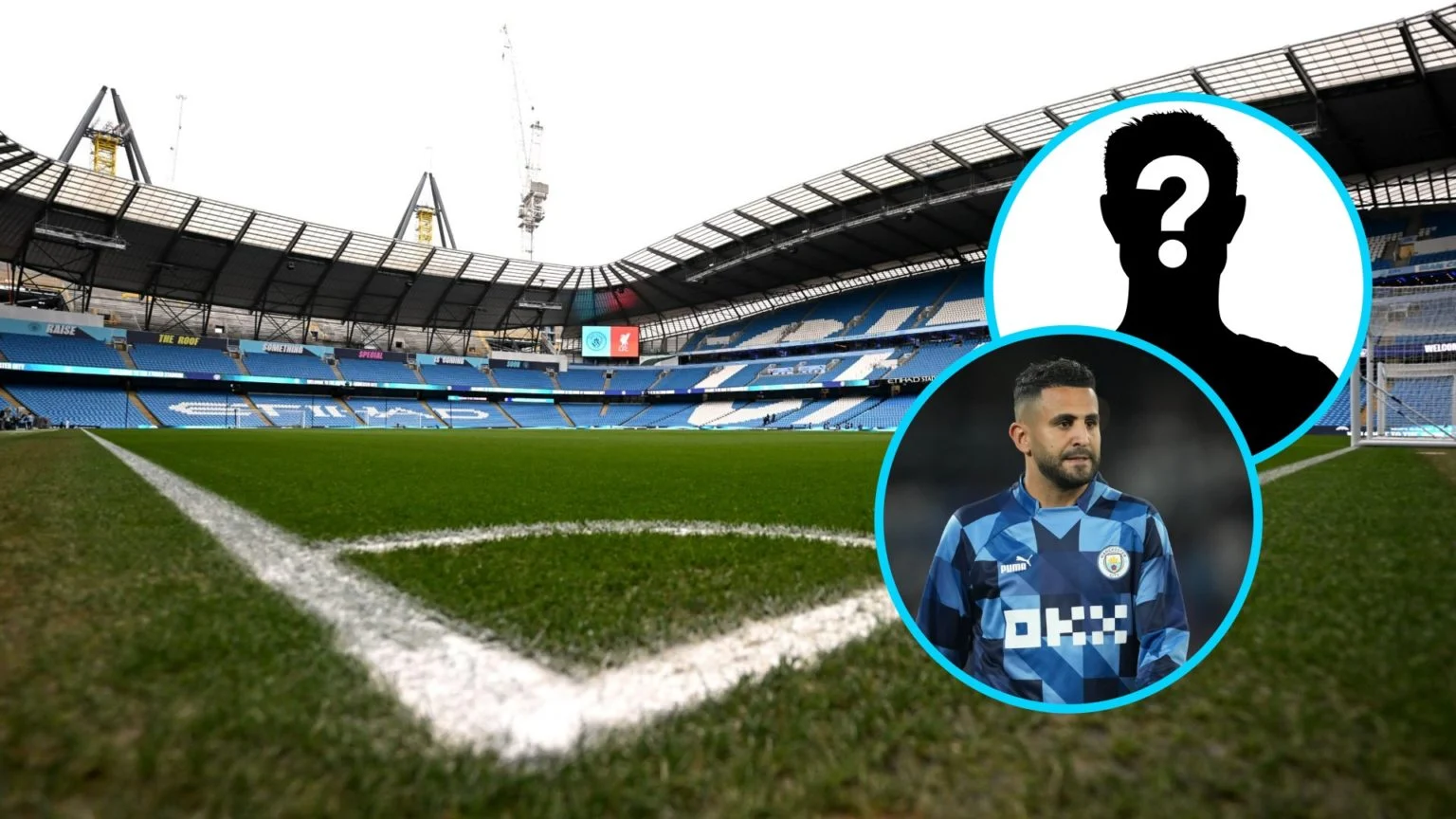
In the unforgiving world of elite football, careers can shift from triumph to uncertainty with startling speed. Jack Grealish’s journey at Manchester City perfectly encapsulates this harsh reality. Once heralded as one of English football’s brightest talents and the subject of a record-breaking £100 million transfer, the 29-year-old winger now finds himself at a career crossroads that could fundamentally alter his footballing legacy.
The summer of 2025 has brought a stark reality check for Grealish. After struggling to establish himself as a consistent starter under Pep Guardiola’s demanding tactical system, the England international now faces the prospect of leaving the Etihad Stadium, with Saudi Arabian clubs emerging as the most likely destination for his next chapter. The irony is palpable: a player who was once considered the missing piece in City’s quest for European glory now finds himself surplus to requirements, his omission from the Club World Cup squad serving as a brutal indicator of his diminished status within the club hierarchy.
This situation represents more than just another high-profile transfer saga. It embodies the ruthless nature of modern football, where even the most expensive signings can quickly fall from favor if they fail to meet the exacting standards required at the highest level. For Grealish, the decision he makes in the coming weeks could define not only his immediate future but his entire footballing legacy.
The Context: Manchester City’s Squad Overhaul
To understand Jack Grealish’s precarious position, it’s essential to examine the broader context of Manchester City’s current squad dynamics and transfer strategy. The club has undergone significant changes during the summer of 2025, with four new signings arriving as Pep Guardiola attempts to reinvigorate a squad that has shown signs of decline.
The catalyst for this reassessment came during Manchester City’s disappointing Club World Cup campaign, where the team suffered a humbling Round of 16 defeat to Al-Hilal. This result served as a wake-up call for the organization, highlighting the gap that had emerged between City and the world’s elite clubs. The defeat was particularly stinging given the club’s previous dominance in both domestic and European competitions.
Guardiola’s response has been characteristically decisive. The Spanish manager, known for his meticulous attention to detail and unwillingness to accept mediocrity, has identified areas where the squad needs strengthening while simultaneously recognizing that certain players no longer fit his tactical vision. This dual approach of addition and subtraction reflects the manager’s philosophy that success requires constant evolution and adaptation.
The club’s recruitment strategy has been focused on bringing in players who can immediately contribute to Guardiola’s tactical system while also addressing specific weaknesses exposed during the Club World Cup. However, with UEFA’s squad registration rules and the manager’s preference for working with a streamlined group of players, the influx of new talent necessitates corresponding departures.
Grealish’s Decline: From Record Signing to Surplus
Jack Grealish’s transformation from Manchester City’s marquee signing to a player facing an uncertain future represents one of the most dramatic falls from grace in recent Premier League history. When City paid Aston Villa £100 million for his services in 2021, they were acquiring a player who had single-handedly kept his boyhood club in the Premier League through moments of individual brilliance.
The expectations surrounding Grealish’s arrival were immense. He was seen as the creative catalyst who could unlock stubborn defenses and provide the unpredictability that City’s sometimes mechanical approach lacked. His ability to beat defenders one-on-one, create chances from seemingly impossible positions, and his knack for producing moments of magic made him appear to be the perfect addition to Guardiola’s already formidable squad.
Initially, there were promising signs. Grealish showed flashes of his Villa form, adapting gradually to City’s more structured approach while retaining elements of the individual flair that had made him such a coveted target. His contributions to City’s 2021-22 Premier League title win, though not always spectacular, demonstrated his ability to function within Guardiola’s system.
However, the 2022-23 season marked a turning point. Despite City’s historic treble triumph, Grealish’s role became increasingly marginalized. His playing time decreased, and when he did feature, it was often in less significant matches or as a substitute. The tactical demands of Guardiola’s system, which requires wingers to maintain specific positioning and adhere to complex rotational patterns, appeared to stifle some of Grealish’s natural instincts.
The situation deteriorated further during the 2023-24 season. Grealish found himself competing with a growing number of attacking options, including the emerging talent of Jeremy Doku and the consistent performances of Bernardo Silva in wide positions. His inability to secure a regular starting position led to speculation about his future, with reports suggesting that both player and club were open to exploring alternative arrangements.
The Saudi Arabia Factor: A Lucrative Escape Route
The emergence of Saudi Arabian clubs as serious contenders for Jack Grealish’s signature represents the latest chapter in the Kingdom’s ambitious project to establish itself as a major force in world football. The Saudi Pro League’s aggressive recruitment strategy, backed by seemingly unlimited financial resources, has already attracted numerous high-profile players, including former Manchester City star Riyad Mahrez.
According to reports, three Saudi clubs have emerged as frontrunners for Grealish’s signature: Al-Ahli, Al-Hilal, and the newly formed Neom SC. Each of these clubs has reportedly submitted lucrative offers that would make Grealish one of the highest-paid players in world football, potentially earning significantly more than his current Manchester City salary.
The financial package being offered by these Saudi clubs is understood to be transformative, not just in terms of basic salary but also including substantial signing bonuses, image rights deals, and other commercial opportunities. For a player who has seen his stock decline in recent years, such offers represent a chance to secure his financial future while potentially revitalizing his career in a less pressure-filled environment.
Al-Ahli’s interest is particularly intriguing due to the presence of Riyad Mahrez, who made the move from Manchester City to Saudi Arabia in 2023 following the club’s treble-winning campaign. Mahrez’s successful transition to the Saudi Pro League, where he has reportedly thrived both on and off the pitch, could serve as a template for Grealish’s potential move.
The Algerian winger’s decision to join Al-Ahli for approximately £30 million was initially met with surprise, given his successful career at City and his status as one of the Premier League’s most effective wingers. However, reports suggest that Mahrez has adapted well to his new environment, enjoying the reduced pressure and the opportunity to be a central figure in his team’s attacking play.
The Reunion Possibility: Grealish and Mahrez at Al-Ahli
The prospect of Jack Grealish reuniting with Riyad Mahrez at Al-Ahli adds an intriguing dimension to the potential transfer. Both players shared successful periods at Manchester City, contributing to the club’s domestic and European success before finding themselves increasingly peripheral to Guardiola’s plans.
Their potential partnership at Al-Ahli could provide both players with the opportunity to recapture some of their best form. Mahrez’s experience in adapting to the Saudi Pro League could prove invaluable for Grealish, offering guidance on both the tactical and cultural adjustments required to succeed in the Middle Eastern football environment.
The tactical setup at Al-Ahli could also suit both players’ strengths. Unlike the rigid positional requirements of Guardiola’s system, the Saudi Pro League generally allows for more individual expression and creativity. This could provide Grealish with the freedom to showcase the skills that made him such a standout performer at Aston Villa, while Mahrez could continue to operate as the creative fulcrum he became during his time at Leicester City and the early years of his City career.
From Al-Ahli’s perspective, the potential acquisition of Grealish would represent a significant statement of intent. Adding a player of his profile and reputation to a squad that already includes Mahrez would create one of the most formidable attacking partnerships in the Saudi Pro League, potentially elevating the club’s status both domestically and internationally.
The Financial Implications: City’s £40m Valuation
Manchester City’s reported £40 million valuation of Jack Grealish represents a significant depreciation from the £100 million they paid for his services just four years ago. This dramatic reduction in value reflects both the player’s declining influence at the club and the broader realities of the modern transfer market.
Several factors contribute to this valuation. First, Grealish’s age and contract situation play a crucial role. At 29, he is no longer considered a young player with significant resale potential, and his current contract terms may limit the club’s negotiating position. Second, his reduced playing time and impact over the past two seasons have inevitably affected his market value.
The £40 million figure also reflects the limited pool of potential buyers for a player of Grealish’s profile and salary demands. While Saudi clubs have the financial resources to meet both City’s asking price and Grealish’s wage demands, European clubs may be deterred by the financial commitment required to secure his services.
From Manchester City’s perspective, recouping £40 million for a player who has become surplus to requirements represents acceptable business. The fee would help offset some of the club’s summer spending while clearing a significant salary from their wage bill. Additionally, the sale would free up a squad place for younger players or new signings who better fit Guardiola’s tactical vision.
The potential transfer also highlights the evolving nature of player valuations in the modern game. While Grealish’s technical ability remains undimmed, his value has been significantly impacted by his inability to establish himself as a consistent starter at City. This serves as a reminder that talent alone is insufficient at the highest level; adaptability, consistency, and tactical intelligence are equally important factors in determining a player’s worth.
The Career Crossroads: Europe vs. Saudi Arabia
Jack Grealish’s decision regarding his future represents one of the most significant crossroads in his career. The choice between accepting a lucrative offer from Saudi Arabia or remaining in European football will have profound implications for both his immediate prospects and his long-term legacy.
The case for accepting a Saudi offer is compelling from a financial perspective. The reported packages being offered would set Grealish up for life financially, providing security for both him and his family. Additionally, the reduced pressure and media scrutiny in Saudi Arabia could allow him to rediscover his love for the game without the intense spotlight that accompanies Premier League football.
The success of players like Riyad Mahrez in adapting to the Saudi Pro League provides a template for how Grealish could thrive in this environment. The league’s growing profile and investment in infrastructure suggest that it is becoming a more attractive destination for elite players seeking a new challenge.
However, there are compelling arguments for Grealish to remain in European football. At 29, he is still in his prime years and has the technical ability to contribute significantly to a top European club. His experience and proven track record in the Premier League make him an attractive proposition for teams looking to add creativity and flair to their attacking options.
The opportunity to revive his career in Europe could be particularly appealing given his previous success at Aston Villa and his contributions to Manchester City’s achievements. A move to a club where he could be a central figure, perhaps in a league like Serie A or La Liga, could provide the platform for Grealish to demonstrate that his struggles at City were more about tactical fit than declining ability.
The Broader Context: English Football’s Saudi Exodus
Grealish’s potential move to Saudi Arabia would add to a growing list of English and Premier League players who have made the transition to the Middle East. This trend reflects the Saudi Pro League’s strategic approach to recruitment, targeting players who can bring both quality and commercial appeal to the competition.
The league’s investment in high-profile signings has been part of a broader strategy to raise the profile of Saudi football and establish the Kingdom as a major player in the global sports landscape. The recruitment of players like Cristiano Ronaldo, Karim Benzema, and N’Golo Kanté has demonstrated the league’s ambition and financial firepower.
For English football, this trend represents both an opportunity and a challenge. While the financial benefits for players and clubs are clear, there are concerns about the impact on the domestic game and the potential for talent drain. The loss of experienced players to Saudi clubs could affect the quality and competitiveness of European leagues.
However, the trend also reflects the evolving nature of modern football careers. Players are increasingly viewing their careers as global opportunities rather than being limited to traditional European leagues. The Saudi Pro League’s emergence as a credible destination for elite players suggests that the football landscape is becoming more diverse and competitive.
The Tactical Considerations: Where Grealish Fits
One of the key factors in Jack Grealish’s potential move to Saudi Arabia is the tactical environment he would encounter. The Saudi Pro League’s style of play differs significantly from the Premier League, potentially offering Grealish the opportunity to showcase aspects of his game that have been constrained by Guardiola’s system.
At Manchester City, Grealish has been required to operate within a highly structured tactical framework that emphasizes positional discipline and collective movement. While this approach has been successful for the team, it has limited Grealish’s ability to express his natural creativity and unpredictability.
The Saudi Pro League’s more open style of play could provide Grealish with greater freedom to influence matches through individual brilliance. His ability to beat defenders one-on-one, create chances from wide positions, and contribute to both goals and assists could make him a dominant force in the league.
The presence of other high-profile players in the Saudi Pro League could also create tactical scenarios that play to Grealish’s strengths. His experience in combining with world-class players at Manchester City could prove valuable in linking up with the likes of Mahrez and other international stars who have made the move to the Middle East.
The Personal Dimension: Life Beyond Football
Beyond the tactical and financial considerations, Jack Grealish’s potential move to Saudi Arabia raises questions about the personal and lifestyle adjustments he would need to make. The cultural differences between England and Saudi Arabia are significant, and adapting to life in the Middle East would require considerable adjustment.
However, the Saudi Pro League’s investment in infrastructure and player welfare has created an environment that is increasingly attractive to international players. The league has invested heavily in training facilities, stadiums, and support services to ensure that players and their families can enjoy a high quality of life.
The experiences of players like Riyad Mahrez, who have successfully adapted to life in Saudi Arabia, provide evidence that the transition can be positive. Reports suggest that Mahrez has embraced his new environment and is enjoying both his football and his lifestyle in the Kingdom.
For Grealish, the opportunity to experience a different culture while continuing his football career could be appealing. The reduced media pressure and the chance to be a central figure in his team’s success could provide the environment he needs to rediscover his best form.
The Legacy Question: How History Will Judge
The decision Jack Grealish makes regarding his future will inevitably influence how his career is remembered. Currently, his legacy is somewhat mixed: a player of undeniable talent who achieved success at the highest level but perhaps never fully realized his potential.
If he chooses to move to Saudi Arabia, his legacy will depend largely on how he performs in his new environment. Success in the Saudi Pro League could be viewed as evidence of his adaptability and resilience, while failure could reinforce perceptions that his struggles at City were indicative of broader limitations.
Alternatively, if he remains in European football and successfully revives his career, it could be seen as redemption for a player who refused to take the easy option. A successful stint at another European club could demonstrate that his difficulties at City were more about tactical fit than declining ability.
The broader context of his career will also influence how he is remembered. His contributions to Manchester City’s success, his performances for England, and his impact at Aston Villa will all be part of his legacy regardless of his next move.
Conclusion: A Defining Moment
Jack Grealish’s potential move to Saudi Arabia represents a defining moment in his career. The decision he makes will not only determine his immediate future but will also shape how his entire career is remembered. The financial security offered by Saudi clubs is undeniable, but the question remains whether such a move represents the best use of his remaining peak years.
The situation reflects the broader evolution of modern football, where traditional career paths are being challenged by new opportunities and different definitions of success. For Grealish, the choice between financial security and sporting ambition will require careful consideration of his priorities and long-term goals.
Whatever decision he makes, Grealish’s journey from Aston Villa’s savior to Manchester City’s record signing to his current predicament serves as a reminder of football’s unpredictable nature. His next chapter, whether in Saudi Arabia or elsewhere, will be closely watched by fans and observers eager to see whether he can recapture the form that once made him one of English football’s most exciting talents.
The coming weeks will reveal whether Grealish views his career as entering a new phase of opportunity or reaching a crossroads that requires careful navigation. Either way, his decision will be one of the most significant of his career, with implications that extend far beyond the football pitch.






